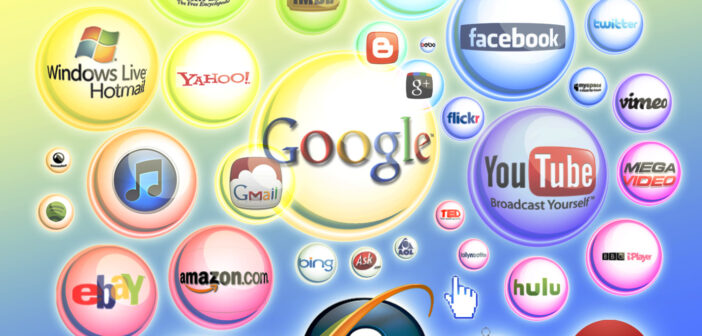 Free Basics is a programme by the Facebook initiative internet.org to provide basic Internet services, like search, Wikipedia, health information and weather updates for free to all users.
Free Basics is a programme by the Facebook initiative internet.org to provide basic Internet services, like search, Wikipedia, health information and weather updates for free to all users.
The aforementioned initiative aims to bring basic connectivity by connecting one billion Indians to jobs, education and opportunities online and ultimately a better future, according to an advertisement released by Facebook.
Internet.org is a partnership between social networking services company Facebook and six other companies that plan to bring affordable access to selected internet services to less developed countries by increasing efficiency.
In India, Facebook has tied up with Reliance Communication for the initiative. It has been criticised for violating net neutrality and handpicking Internet services that it will include in their platform and for discriminating against other companies which will not be a part of it like, for example, Facebook’s rival companies.
Facebook defence
Mark Zuckerberg contends that Internet connectivity is a basic human right and remarks that connecting everyone is one of the fundamental challenges. Zuckerberg commented that his company aims to bring affordable connectivity to billions of the world’s poor, including Indians.
Facebook claims its Free Basics service is under the NDA government’s Digital India programme which aims at digitalising India in the context of digital equality in India. It claims to make internet accessible to more citizens by providing them access to a range of services like news, maternal health, travel, local jobs, sports, communication and local government information but all are piled up in a series of 25 websites, selected individually under no transparency by Facebook.
The Facebook CEO even got Microsoft founder Bill Gates and Wikipedia co-founder Jimmy Wales to sign a declaration pledging their collective resource towards this goal.
Freedom in real sense
The basic premise of net neutrality is of freedom, an open Internet that protects and enables free communication. Anything that takes away this freedom violates the fundamentals of free Internet.
However, Facebook’s Free Basics is neither free nor basic irrespective of its claims that anyone can join the platform and it is not for selected audience.
Speaking from the consumer’s point of view, first we need to have a valid Reliance Communication SIM card and then we get access to only those websites that have collaborated with Facebook to be a part of the platform; although there is a provision that websites can apply for a license to be a part of the platform. In the end it is going to be Facebook’s call on who gets to participate.
To give an instance, it will be on Facebook’s recommendation and choice we will be allowed to gather information, news or education. On the contrary, the principle of net neutrality states we can access the entire Internet which is contrary to the Free Basics provision of limiting it to a certain number of accessible websites on the basis of payment.
In any democracy it is imperative to respect the choice of the citizens as far as consumption is involved. Regarding Free Basics it should be left to the consumer to decide what one wants to access.
We need to provide full Internet at prices people can afford, not privilege private platforms. This is where India’s regulatory system has to step in.
Facebook misleading with ads
The airwaves, the newspapers and even the online space are now saturated with a Rs. 100 crore campaign proclaiming that Internet connectivity for the Indian poor is a gift from Facebook which net neutrality fundamentalists are opposing.
In its campaign, Facebook is also using the generic phrase “free, basic Internet” interchangeably with “Free Basics”, the name it has given its private, proprietary platform. This is in blatant violation of Indian rules on advertising, which forbid generic words being used for brands and products.
This is from a company which, in spite of having 125 million Indian subscribers, refuses to be sued in India, claiming to be an American company and therefore outside the purview of Indian law. Nor does it pay any tax in India.
The Telecom Regulatory Authority of India (TRAI) has stopped this service for now, pending its public consultation on the subject. Facebook’s campaign is essentially to influence the outcome of such a consultation.
Data compromise
By accepting the Silicon Valley model of private services, we pay the Internet monopolies with our data, which can then be monetised. Personal data is the currency of the Internet economy. Data as commodity is the oil of the 21st century.
Facebook and Google’s revenue model is based on monetising our personal data and selling it to advertisers. Facebook generates an estimated revenue of nearly $1 billion from its Indian subscribers, on which it pays no tax.
Free Basics is not free, basic Internet as its name appears to imply. It has a version of Facebook, and only a few other websites and services that are willing to partner Facebook’s proprietary platform.
Today, there are nearly 1 billion websites. If we consider that there are 3.5 billion users of the Internet, 1 out of 3.5 such users also offers content or services. The reason that the Internet has become such a powerful force for change in such a short time is precisely because anybody, anywhere, can connect to anybody else, not only to receive, but also to provide content. All that is required is that both sides have access to the Internet.
All this would stop if the Internet Service Providers (ISPs) or telecom companies are given the right to act as gatekeepers. This is what net neutrality is all about. No one should decide what part of the Internet or which websites we can access. This is what has made the Internet, as a platform, so different from other mass communications platforms such as radio and television.
India demographic dividend
While the Free Basics platform has connected only 15 million people in different parts of the world, in India, we have had 60 million people join the Internet using mobiles in the last 12 months alone. And this is in spite of the high cost of mobile data charges. There are 300 million mobile broadband users in the country, an increase fuelled by the falling price of smartphones.
In spite of this increase in connectivity, we have another 600 million mobile subscribers who need to be connected to the Internet. Instead of providing Facebook and its few partner websites and calling it “basic” Internet, we need to provide full Internet at prices that people can afford. This is where the regulatory system of the country has to step in.
The main barrier to Internet connectivity is the high cost of data services in the country. If we use purchasing power parity as a basis, India has expensive data services compared to most countries. That is the main barrier to Internet penetration. Till now, TRAI has not regulated data tariffs. It is time it addresses the high price of data in the country and not let such prices lead to a completely truncated Internet for the poor.
Danger ahead
The danger of privileging a private platform such as Free Basics over a public Internet is that it introduces a new kind of digital divide among the people. A large fraction of those who will join such platforms may come to believe that Facebook is indeed the Internet.
The British Empire was based on the control of the seas. Today, whoever controls the data oceans controls the global economy. Silicon Valley’s data grab is the new form of colonialism we are witnessing now.
Net neutrality is not an esoteric matter, the concern of only a few netizens. It is fundamental to the world, in which the Internet is a source of knowledge, a means of communication, an artery of commerce. Whoever controls access to the Internet will control our future. This is what the current battle over Facebook’s Free Basics is all about.


